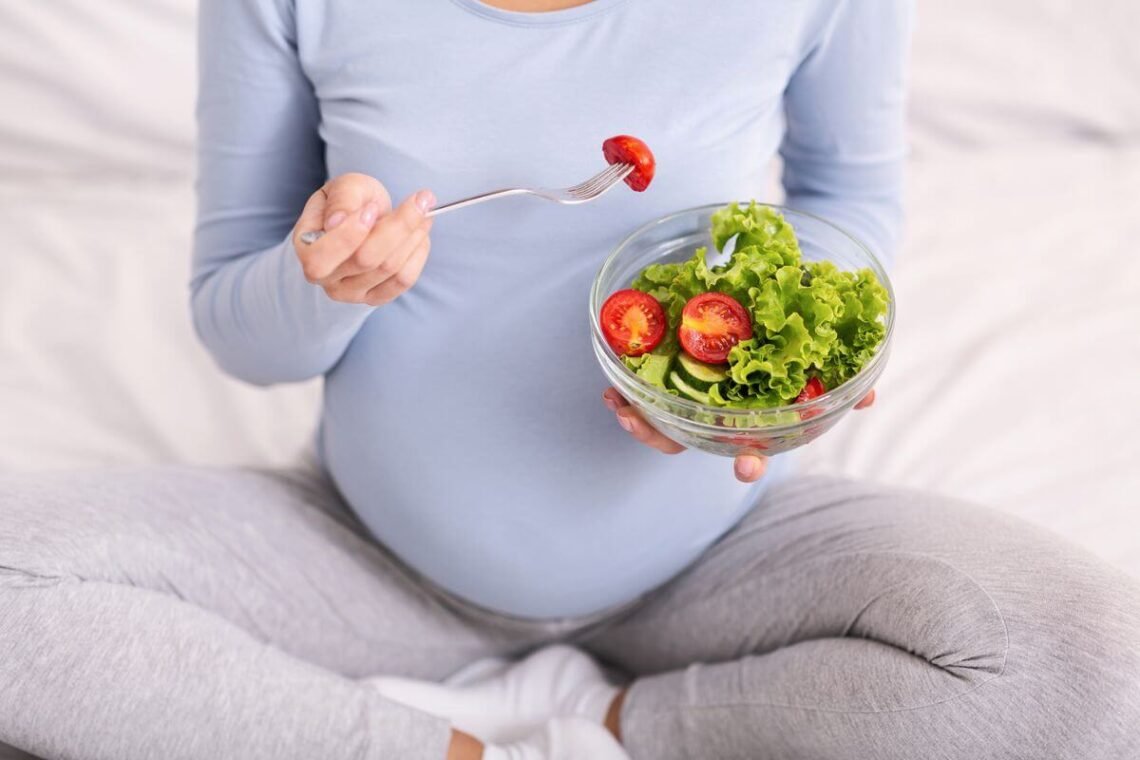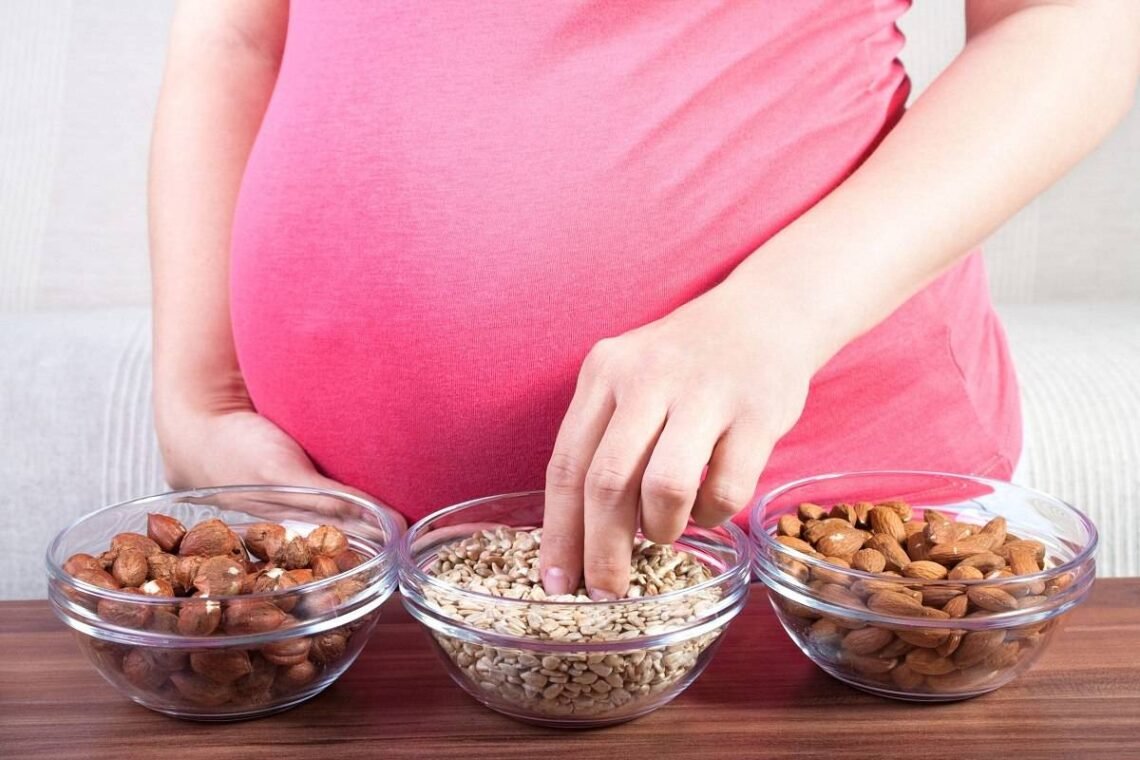The mentality of expectant mothers in recent decades has changed a lot. At one time the concern of pregnant women was “eating for two”: today she is afraid of weight gain in pregnancy, of gaining too much weight, and of deforming herself. On the contrary, there is an excessive concern about gaining weight: it is important to evaluate the individual situation and the starting condition, which can be normal weight, underweight or overweight. This concept is also explained in the tables of the guidelines on nutrition in pregnancy, recommended by the relevant scientific societies.
What To Do In The Pre-Pregnancy Stage
The pre-pregnancy phase is very important. Today there is a strong tendency toward child planning: it becomes essential, both for doctors and for patients, to address the issue of pregnancy weight during the first preconception visit. This is aimed at helping the woman to tidy up and evaluate her lifestyle.
A practical example: a woman looking for a child, who has a BMI (body mass index) that is in the obesity range, will need to adjust her weight before becoming pregnant. Setting a good healthy diet before looking for a child is a rule that every woman should give herself, and this is all the more true for those who are underweight or overweight.
How Many Times Do Weight Gain In Pregnancy Yourself

The suggestion is to buy a scale to keep at home and to weigh yourself regularly. In parallel to the medical check-up (usually once a month), the woman will weigh herself at home once a week, dressed in the same way (for example only with underwear), in the same conditions, and at the same time. Respecting these indications serves to monitor the regularity of weight gain. Signs of a disease can be linked to sudden increases or blocks in weight gain.
How Many Pounds Do You Gain In Pregnancy?
For a woman of normal weight, the total increase is around 10-13 kilos over the entire pregnancy. Those who are underweight can gain up to 16-18 pounds, overweight or obese women will need to gain 6-7 pounds at most or even lose weight during pregnancy.
The First Trimester: Eat According To Common Sense
By dividing the time into the three quarters, the first and part of the second quarter are the least significant. Don’t be scared if by chance you stay still with the weight or gain 1-2 kilos in the first quarter and up to the first weeks of the second.
According to pregnancy weight gain tables, an increase of about 250g per week is correct. In the first trimester, nausea, digestive difficulties, and refusal of certain foods can be the cause of the weight that remains stationary. Also due to these problems, imperfect nutrition can be tolerated in the first three months of pregnancy.
When stomach acidity and heaviness occur, it is good to follow common sense and eat dry foods and carbohydrates: dry biscuits, bread, pasta, and plain rice are well tolerated in the first trimester.
Also, not gaining weight in the first trimester and eating right allows you to keep water retention and fat deposition on the tissues under control. In the first months the embryo and placenta form and develop but not in terms of weight.
In Which Month Of Pregnancy Do You Gain The Most Weight?
In the second and third quarters, especially from the fifth month onwards, the increase becomes real. The size of the fetus, amniotic fluid, and placenta increases. This is the period in which the fetus develops bone and muscle mass and in which its systems begin to function. It, therefore, requires a more regular nutritional intake.
Weight Gain In Twin Pregnancy
In the case of a twin pregnancy, weight gain – even in women of normal weight – is around 14-18 kilos at term. Often, however, in these pregnancies, there is a threat of premature birth or the gynecologist decides to have them terminated earlier. In the first 4-5 months there are no changes, you hardly realize you have two fetuses in your belly. From 19-20 weeks the belly suddenly gets bigger and the weight and volume gain is noticeable.
You can have back pain problems related to the volume and distension of the muscles. Babies can weigh 2.5 kilos each, and the weight of the amniotic fluid doubles and reaches about two liters.
The recommendations regarding nutrition are the same as for single pregnancy, which we will see shortly.
How Many Pounds Do You Gain At 20 Weeks?
In the fifth month, therefore around 20 weeks of pregnancy, the weight gained should be 4-5 maximum, about half of the total weight gained in the nine months.
Women who start underweight are more comfortable because they need to have a richer diet. In other words, you can think of leaving them free to eat whatever they want. In overweight
women, on the other hand, the word diet during pregnancy should not be taboo. They can make a diet to lose excess pounds, especially in the first trimester. The diet must be indicated by the gynecologist, midwife, or nutritionist.
The Rules For Healthy Eating During Pregnancy

In general, the diet to be followed must be slightly high-protein and high-calorie, for a total of 300-400 extra kilocalories taken per day. Of these, most must come from proteins, which are essential for the development of fetal and adnexal structures.
You need to cut down on carbohydrates and consume more at breakfast. The three main meals must include proteins, the amount of which must increase throughout the day as the amount of carbohydrates decreases. Therefore, dinner will be more protein than other meals.
Compared to the quality of the food, always prefer seasonal, organic, and fresh products. Respect the 5 portions of fruit and vegetables per day, to be distributed during meals and snacks.
If you do not already have great attention to healthy nutrition, this is a good opportunity to start a journey in this direction. And to carry it forward as your child grows.
As for supplementation, folic acid should be taken because it protects against neural tube defects. There are also multivitamin preparations that can integrate the right doses of vitamin D, calcium, etc.: they are prescribed by the gynecologist who is treating the patient.
How Many Kilos Do You Lose Just After Giving Birth?
The kilos lost in childbirth are theoretically at least two-thirds of the weight accumulated during pregnancy. Clearly, we must evaluate case by case. In general, however, about 3 kilos of overweight remain, in proportion to how much you have gained. Considering that breastfeeding is desirable, we think this does not help to lose all the weight gained. In fact, to breastfeed you need to eat, rest and drink a lot. After giving birth, you don’t move much, you spend a lot of time at home.
Therefore, we must not be in a hurry to lose all the weight accumulated with pregnancy; it is essential to worry about continuing to have a good diet and drinking a lot.
Typically, it takes 9-12 months to return to pre-pregnancy weight. In addition, you must also be patient with regard to the complete recovery of muscle activity, starting again very gently to play sports and gymnastics, leaving the body time to recover.
Read Also: What Does It Mean To Dream Positive Pregnancy Test?









